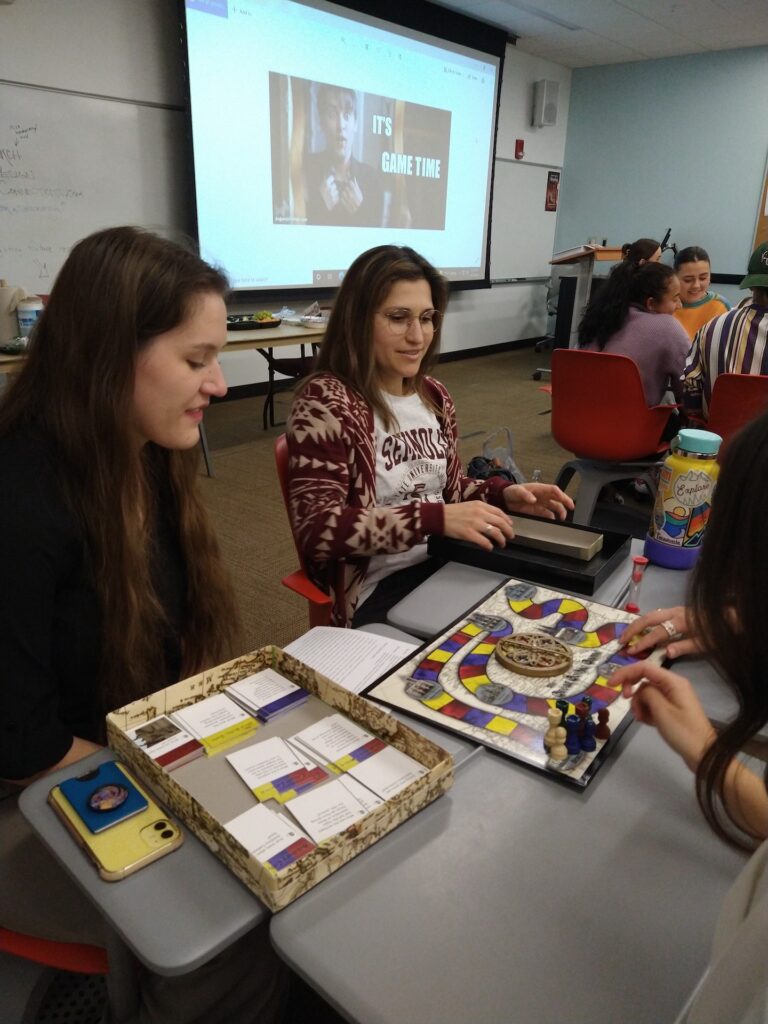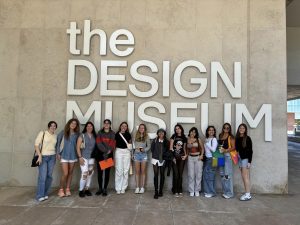About Us
Our approach is one driven by a systemic design process, shaped by critical thinking and dedicated to translating needs to spatial solutions that support users’ satisfaction and well-being.
Our community is one of strength made possible through a supportive, positive learning environment, imparting skills and ideas so that students can manipulate interior architectural spaces to advance our world to its best expression.
The Department of Interior Architecture and Design, housed in the College of Fine Arts, offers multiple degree options in interior design to suit a wide variety of student needs:
- Undergraduate level: Two CIDA-accredited bachelor’s degrees (B.S. and B.A.)
- Graduate level: The Graduate Program includes programs suitable for students with or without prior undergraduate degrees in interior design or architecture.
- A Master of Science first professional degree (M.S.)
- A Master of Science (M.S.) post-professional degree with two separate tracks for research and design project development
- A Master of Fine Arts degree (MFA)
A fast-track option for qualified bachelor’s degree students can also provide a combined bachelor’s and master of science (M.S.) degree in 5 years.
Students engage in the general curriculum with design theory, history, technical skills, and participate in studio classes addressing residential and commercial spaces including health care, retail, office environments, hospitality, furniture design and specialized projects for children, seniors, and others in need of supportive spaces. The curriculum prepares students to work in interior design firms, as interior designers in architectural firms, or in many other design-related settings.
Thoughtful interior environments can help to protect and support people, the natural environment, human resources, and make the world a better place in which to live, work, and thrive. The Department of Interior Architecture & Design at Florida State University offers the knowledge and skills necessary to create built environments that are functional, safe and beautiful. Now more than ever, designers can bring good places to people so that they can be their best selves.

Department Mission
Human-Centered & Evidence-Based DesignThe Department’s mission is to provide students the knowledge necessary to pursue careers as designers who create functional, sustainable and beautiful environments that positively impact human health, safety and well-being. To this end, the Department imparts the values of human-centered and accessible design, evidence-based design processes and creative and critical thinking so that students create well-designed spaces where people live, work, and thrive.
Educational Philosophy
Driving Positive ChangeDesign is a pivotal driver of change, advancement, and equality in society, and it is essential to the physical and psychological well-being of the human experience. The Department of Interior Architecture and Design provides a strong foundation for the collaborative practice of interior design. Throughout the interactive studio environment, students are nurtured as independent and creative learners who integrate fundamental skills, critical thinking, and evidence-based research into the design process. Employing constructivist pedagogies and experiential learning techniques, students move beyond passive learning to become active producers of knowledge in the field.
Department Values
Well-being for AllAs designers, we believe that well-designed spaces have the potential to positively impact human well-being. As faculty, we strive to impart the following human-centered values to our students:
- Creative, beautiful and meaningful spaces enhance our life experiences.
- Well-designed spaces are an important part of our daily lives and our history.
- Spaces have the ability to contribute to our sense of place and community.
- Spaces should be functional and meet the needs of building occupants.
- Sustainable design is essential to human health and well-being.
- Research and evidence-based design are an essential part of design decision making.
- Ethical behavior and responsible business practices are essential.

International Programs
Career Path
The FSU Interior Design program resides in the Department of Interior Architecture & Design. Students are heavily involved in shaping interior space and hence, the department name accurately describes the work students engage in while in school and out in the workforce. The undergraduate program leading to the bachelor’s degree (either BS or BA) is accredited by the Council for Interior Design Accreditation (CIDA). The CIDA-accredited program prepares students for entry-level interior design practice, for advanced study, and to apply for membership in professional interior design organizations. The bachelor’s degree granted by Florida State University meets the educational requirements for eligibility to take the National Council for Interior Design Qualification Examination (NCIDQ Exam). It is important to note that students remaining in the state of Florida will be eligible (upon passage of the NCIDQ) to be voluntarily registered as interior designers. Because our program name is interior design, FSU diplomas read “interior design.” Please contact the department for any clarification.
Department Facilities
The Department is housed in the William Johnston Building, on Landis Green in the heart of the FSU campus (with our main department office in 1038 WJB). Aside from the department and faculty offices, our facilities consist of six design studios, a CAD lab, print center, resource room, graduate lab, seminar and lecture spaces, a gallery, a design library and congregation spaces for our students. The building achieved a Gold LEED certification. The FSU Innovation Hub is directly across the green.
Retention and Placement Statistics
Accreditation
The Bachelor of Science and Bachelor of Arts degrees are accredited by the Council for Interior Design Accreditation. All department degrees are also accredited by the National Association of Schools of Art and Design.
Bylaws